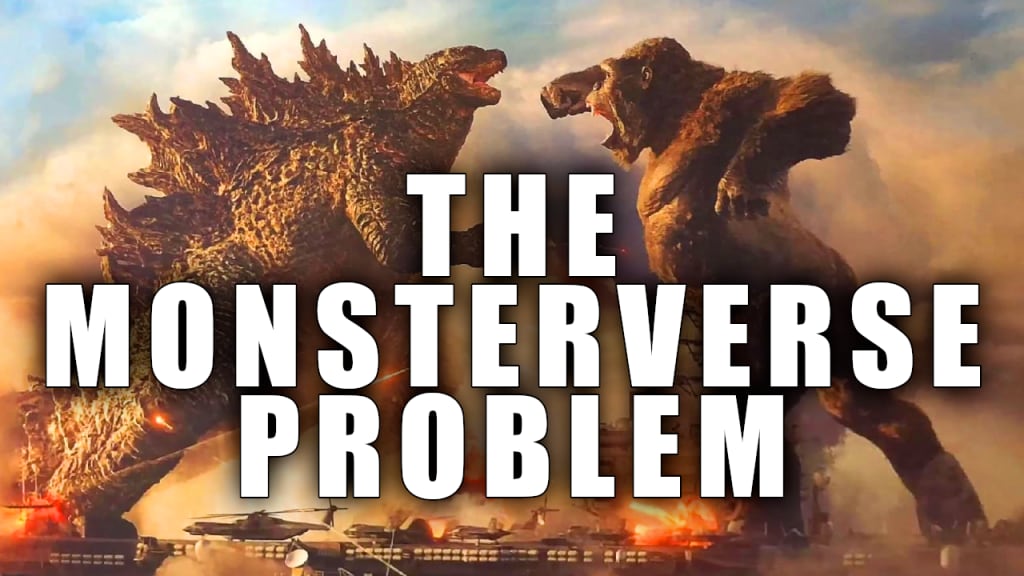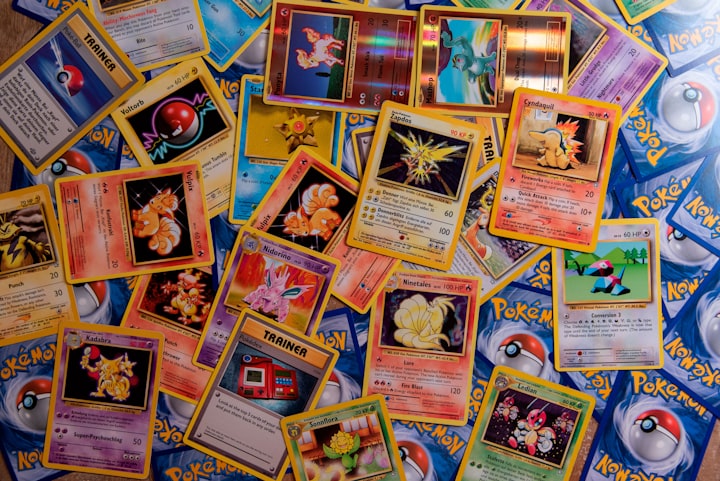
Since 2014, Legendary Entertainment has reintroduced the world to one of the most famous and longtime-running icons in cinema history: Godzilla, King of the Monsters. Introduced in sixty years prior, Godzilla roared through Japanese cinemas in the 1954 film Gojira and was later introduced to the western audience in the 1956 re-edit Godzilla, King of the Monsters!, featuring Canadian-born actor Raymond Burr. The introduction to Godzilla brought about new fans, worldwide recognition, and a crossover universe called the Monsterverse featuring another famous and longtime-running icon in cinema history: King Kong. However, there is a problem with the shared universe in the direction it's going, especially with the release of the 2021 film Godzilla vs Kong: will the Monsterverse run itself dry of storytelling and become a franchise just known entirely for action?
A little bit about myself, I grew up on Godzilla films, whether they be from the Showa, Heisei, or Millenium eras. Godzilla has been a vital, even astronomical part of my life, with some of my research and projects being about Godzilla and the politics behind it, the evolution from villain to hero, and the sacrifices the cast and crew had to go to. To quote Takehiro Murata's character in the English dub of the 1999 film Godzilla 2000: Millenium, "Godzilla is a goldmine of knowledge", yet nowadays, people are avoiding the problem as a whole and just want to see monsters fight, which is where my argument comes in.
To start off, giant monster movies have always been about either two things: delivering a message or telling a story. In regards to delivering a message, the original Godzilla was used as an allegory for the testing of nuclear weapons in the Pacific. Later films such as 1984's The Return of Godzilla and 2016's Shin Godzilla, some of the best and most controversial entries in the entire franchise, focused on the political stances of Japan, with the former being about Japan during the Cold War and their stance on the usage of nuclear weapons, while the latter heavily drawing inspiration by the 2011 Fukushima Disaster and the delayed responses of the Japanese government.
When it comes to storytelling, giant monster movies are no shortage of original ideas: ranging from fictional elements of alien invaders, underground civilizations, and even diving into the mythical and supernatural. Movies like Ishirō Honda's 1964 film Invasion of Astro-Monster and 1968 film Destroy All Monsters have introduced the concept of alien invaders controlling monsters to take over the world into the Godzilla franchise and have been staples ever since, which goes far into other movies and even extended media like IDW Publishing's Godzilla: Rulers of Earth comic series.
On the opposite side of the spectrum, you got films like Shūsuke Kaneko's Gamera Trilogy (1995-1999) and 2001 film Godzilla, Mothra and King Ghidorah: Giant Monsters All-Out Attack dealing with the mythical world and the concept of supernatural, with subjects such as Atlantis, spiritual mediums, ghosts, and ancient protectors of the land to name a few. Even films like Ryuta Tasaki's Gamera the Brave (my favourite movie of all time, by the way) delve into the mystical, with the idea of the stone the titular monster being born from giving him extended power.
In short, monster movies CAN tell amazing stories, which is where the subject of storytelling within the Monsterverse comes in. Originally, Edward Gareth's 2014 film Godzilla was supposed to be standalone film, but garnered success upon release and eventually, the announcement of "Godzilla 2" and "Godzilla 3" at San Diego Comic Con 2014 was revealed, alongside the acquisition of Mothra, Rodan and King Ghidorah: three of Toho Studios biggest names from their monster pantheon. The following year brought another name to the table: King Kong, in what would be a shared universe later called the Monsterverse, which would be tied together with the then scheduled 2020 movie Godzilla vs. Kong.
Jordan Vogt-Roberts would direct the next entry in the shared universe with his 2017 film Kong: Skull Island. Unlike the predecessors before him however, Vogt-Roberts introduced a new and completely different narrative to the King of Skull Island, rather than rehashing the same story again. He introduced Skull Island as this place where death can come at any moment and instill complete paranoia, which draws into the main conflict of the film. Kong, rather than a ferocious god worshipped by the native people of the island, is reintroduced as a benevolent protector whose lost all his family, locked in an eternal struggle to defend the native peoples from the devils of the island: the Skullcrawlers. This whole struggle becomes tilted when Samuel L. Jackson's character Preston Packard starts his own war with the protector, while John C. Reilly's character Hank Marlow trying to be the voice of reason why not to interrupt the order of things. Vogt-Roberts' entry has some of the best storytelling, if not, the best in the entire franchise.
2019 would see the sequel to 2014's Godzilla. Set five years after the Battle of San Diego from the previous film, Michael Dougherty's Godzilla: King of the Monsters (not to be confused the 1956's re-edit of the original movie) introduces the audience to a world filled with monsters: the most dangerous being the three-headed space dragon, King Ghidorah. Unlike previous films from the Toho cinematic history, Godzilla and King Ghidorah are pictured as rivals battling for the status of alpha: something that hasn't been done before. The movie also reintroduces the audience to Mothra: the giant moth guardian of Infant Island, and Rodan: a monstrous volcanic Pteranodon dormant in Isla de Mara's dormant volcano. The two were originally introduced to the Toho pantheon in their own films released in 1961 and 1956 respectively and have since been tied into the Godzilla franchise since 1964's Ghidorah, the Three-Headed Monster, which also debuted King Ghidorah. The biggest problem that King of the Monsters has, standing from a general audience's point of view, is that the movie is filled with so much tropes and throwbacks to previous Godzilla films that it feels more like a love letter to all the fans who got bullied for loving the franchise when they were younger, not that there's anything wrong with that, it's just that you have to love the older stuff if you want to enjoy the movie. However, this made it subject to I'd refer to as some of the most bias reviews I've ever seen coming from critics, with some calling it an incredible terrible story. Michael Dougherty understood what fans wanted and ultimately delivered what I call one of the best Godzilla movies the west has ever produced, if not, the best. He stayed true to the origins of the monsters, established conflict on both human and monster sides, and ultimately introduced Godzilla as a balance to the order of nature, all while establishing a lot of open ends that could brought up in future media.
Two years after the release of Godzilla: King of the Monsters and one year into the COVID-19 pandemic, Adam Wingard's Godzilla vs. Kong saw a 2021 release in theatres and on WarnerMedia's (now Warner Bros. Discovery) streaming platform HBO Max, bringing together two of the greatest names in cinema history since 1962's King Kong vs Godzilla. Godzilla vs. Kong has, and I'm gonna be completely honest, some of the worst storytelling in a Godzilla or King Kong movie I've ever seen. Sure, it's awesome to see Godzilla cause destruction intentionally one in a while, but when you make a movie that's supposed to show both sides and only show one side of the narrative (in this case, the Kong side) for 70% off the movie, with 20% being about people trying to figure out why Godzilla's riled up without even showing a glimpse of him except for one seen showing him swimming between the first and second battles in the film really goes to show how much Wingard really cares about the narrative of his films (I'm talking about you, Death Note). Whenever I hear people talk about Godzilla vs. Kong, they praise it for the action, not the characters, the story, the setting, etc. It was there I started to realize that people don't care about the story in these movies, only that monsters beat the living daylights out of each other. People seemingly forgot about the mess that was 2018's Pacific Rim: Uprising, which sacrificed story and character development, tone, and feel to create a Transformers-esque action movie that, not only flopped, but essentially killed the Pacific Rim franchise that Guillermo del Toro put so much heart and soul into. The inclusion of Mechagodzilla doesn't help either, especially if it's just a plot device to have the two fight. The Mechagodzilla in this movie was, without a doubt, one of the worst both narratively and design-wise I have ever seen, next to Mechagodzilla City from Godzilla: City on the Edge of Battle, but at least that served a purpose narratively. Not to mention the villains of the film: Walter Simmons was just a completely flat character. "I'm gonna make Godzilla because I hate Titans" is probably one of the most idiotic, if not absent-minded responses from a Godzilla villain I've ever heard, and Maya Simmons was degraded to a deadweight henchmen after she revealed her father's plans. Ren Serizawa, however, had so much potential to be an actually terrifying villain, but that potential was thrown into a trash can. Rather than killing him off, they could've made him the final antagonist instead of the having Ghidorah's subconscious take over, driven by his rage and jealousy towards the monster. Overall, I could enjoy Godzilla vs Kong for the action, but not the plot.
What I'm trying to get at, is that a good monster movie needs to hit that middle ground between narrative and action. You don't have to be a rocket scientist to understand that. Even in solo giant monster movies, narratives are always a strong point. How can we stop these monsters? Why are they a problem to our society? Why are they here? It feels as though people are just hopping onto the franchise to get their directorial Hollywood debut and that's what scares me as someone whose been loving the King of the Monsters for well over two decades. I want the Monsterverse to succeed, yet at the same time, I don't want it to be known only for giant monsters that kill each other. I want it to be known for reintroducing beloved characters while giving them backstories that help to give them a sense of identity, rather than just mindless monsters fighting one another.





Comments
There are no comments for this story
Be the first to respond and start the conversation.